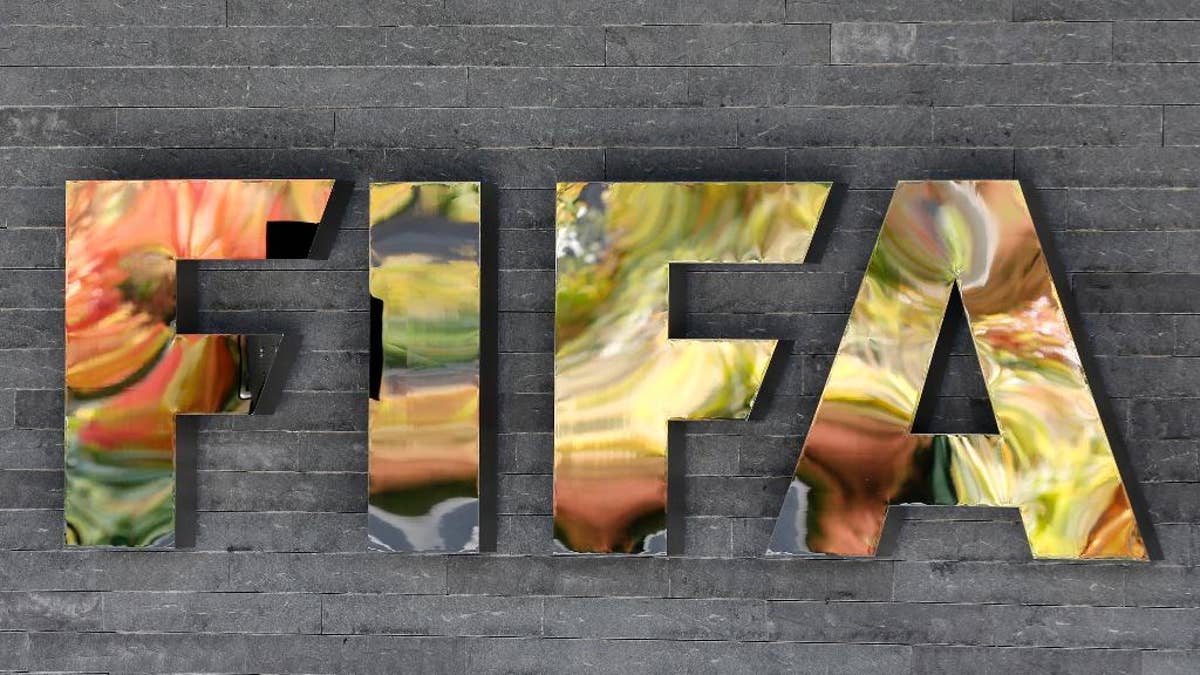
FILE - In this Sept. 25, 2015 file photo, the FIFA logo is fixed on a wall of the FIFA headquarters in Zurich, Switzerland. So far, 16 of FIFA’s 209 member associations have been implicated in an ongoing U.S. Department of Justice investigation of decades of soccer bribery and graft, by virtue of the fact that either their presidents or ex-presidents _ or both in the cases of Brazil, Honduras and Guatemala _ are among those indicted or who have pleaded guilty. (AP Photo/Michael Probst, File) (The Associated Press)
PARIS – Perhaps the only thing scarier than the scale of corruption that U.S. investigators are uncovering in football is the thought that a sizeable chunk of those indicted administrators might soon also have laid paws on the sport's crown jewel, the World Cup.
Back in 2013, it seemed like a smart move when the power to decide where soccer's showcase tournament is played was taken away from Sepp Blatter and the FIFA president's discredited Executive Committee.
Their scandal-tainted selection behind closed doors of not just one but two dubious World Cup hosts — Russia for 2018 and Qatar for 2022 — had caused a reputation-shredding stink for FIFA. So at a May 2013 congress on the Indian Ocean island of Mauritius, 200 of FIFA's member associations approved by 198 votes to 2 that from now on they would make future World Cup hosting decisions themselves.
A larger electorate, the thinking went, could be harder for World Cup bidders to bribe and otherwise corrupt and influence than the smaller Executive Committee of two dozen members. So the change seemed like a modest victory for reform, accountability and transparency in an organization that desperately needed industrial-strength doses of all those things.
Seemed.
Based on what U.S. justice officials are now turning up, the guardianship of the World Cup still looks far from safe. So far, 16 of FIFA's member associations have been implicated in the ongoing U.S. Department of Justice investigation of decades of soccer bribery and graft, by virtue of the fact that either their presidents or ex-presidents — or both in the cases of Brazil, Honduras and Guatemala — are among those indicted or who have pleaded guilty. Throw in the football associations of Argentina and South Africa, also named in DOJ indictments, and the figure rises to 18.
That is 18 out of the total of 209 national football associations that are affiliated with FIFA. Or, put another way, approaching 10 percent of the electorate in future votes to choose World Cup hosts. Although that doesn't necessarily mean that entire associations must be riddled with corruption or that future World Cup votes will be, that so many of them are operating under DOJ clouds is bad for trust, confidence and credibility in the whole system.
So reforms that FIFA is now applying to the way it does business must also go beyond the governing body's headquarters in Zurich. To turn FIFA into something other than a byword for bad management and abuse of power will also require rooting out bad management lower down football's pyramid, among FIFA's membership. Having one without the other would be like putting lipstick on a pig and won't fool anyone.
"It's not just FIFA," Ben Wheatland of anti-corruption watchdog Transparency International says. "It needs to be on every level. There needs to be that transparency, and the openness and a degree of accountability, which at the moment there just isn't."
Wheatland was one of three authors of a Transparency International report last month that found many FIFA associations are shockingly poor at letting the outside world know exactly how they account for their revenue and millions of dollars the Zurich HQ gives them to work and grow football. One in five FIFA members don't even have a website, TI found.
"That's the first step on the ladder of being able to hold these people to account," Wheatland notes. "If they don't even have that then they're just not playing ball at all."
Even FIFA recognizes there are problems, telling its 209 member federations in a letter released this week of "major deficiencies" in their handling of tens of millions of dollars in project money this year.
The next vote for a World Cup was expected in May 2017, to choose the host for 2026. But that timing now looks unlikely, thrown off by the U.S. and Swiss corruption probes that have brought down Blatter, who is suspended from FIFA and under investigation by Switzerland's attorney general for suspected criminal mismanagement.
Rescheduling the vote for 2026 will be a job for Blatter's successor, to be elected in February. If he's smart, the new president will use that ticking clock as leverage: tell all member federations that those which fail to reform, that don't have websites, publish full accounts and, for good measure, don't have term limits and integrity checks for their top officials or publish their salaries simply don't deserve to have a hand in picking future World Cup hosts.
After all, if FIFA members can't run themselves properly why should they be trusted at all? Short answer: they shouldn't. Given that its decision will impact how taxpayers' money is spent in the country selected, the World Cup electorate should be squeaky clean.
So should the vote. That should mean completely open ballots so federations can then be asked afterward to explain why they voted as they did. There also should be rules to ensure that bidders' spending is transparent, limited and accounted for.
"You can't just trust these people to make this decision behind closed doors," Wheatland says. "Even if most of them aren't corrupt, the opportunity for corruption is there."
___
John Leicester is an international sports columnist for The Associated Press. Write to him at jleicester@ap.org or follow him at http://twitter.com/johnleicester
